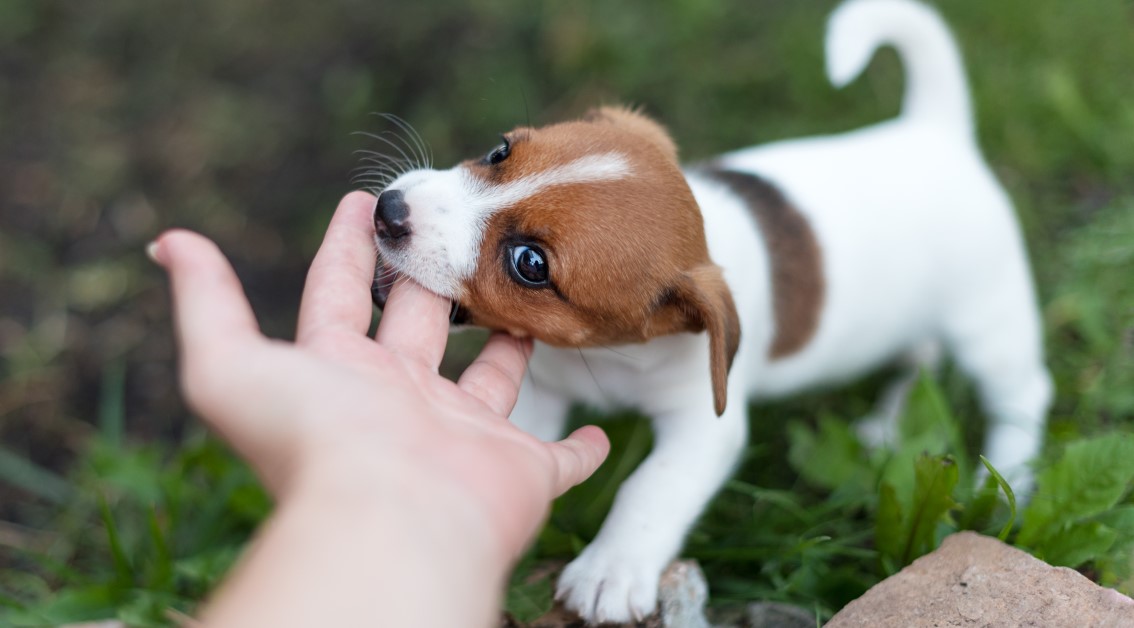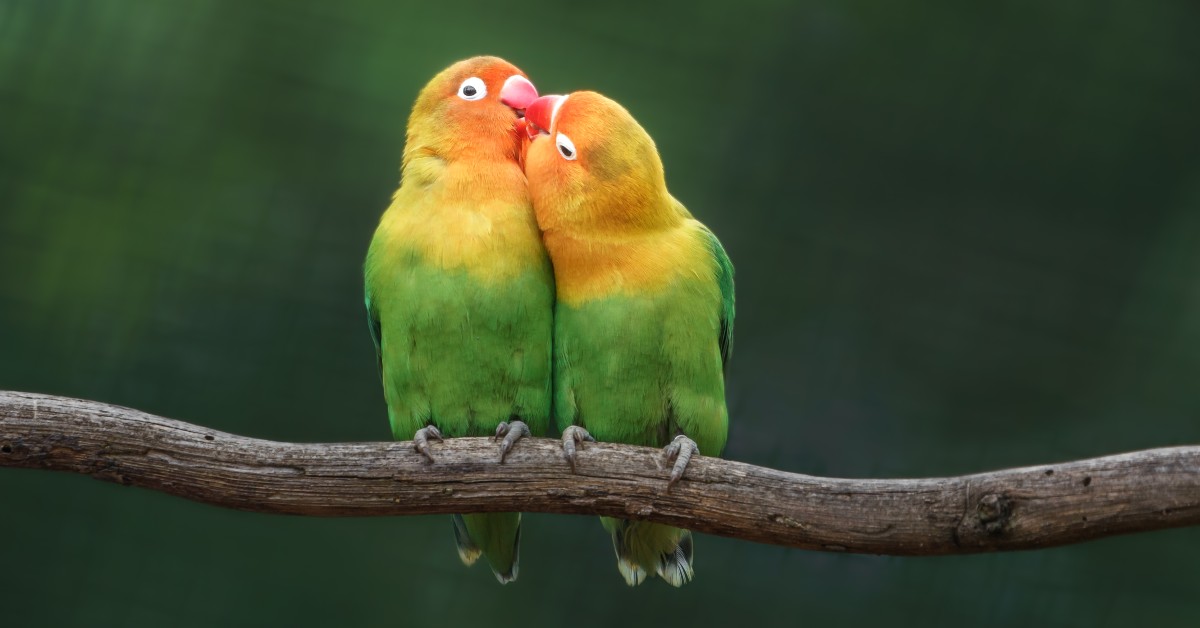How to Stop Mouthing, Nipping and Biting in Puppies
Mouthing, nipping, and biting are common behaviors in puppies that can be stopped with consistent training.

Puppies are curious creatures that love to explore the world around them. Due to this natural curiosity, it’s common for young puppies to mouth, nip, and bite their human companions. Although mouthing is usually a harmless behavior that most dogs grow out of over time, it can be a painful nuisance in the meantime. Their razor-sharp teeth can break the skin as gentle mouthing slowly progresses to more intense biting.
It's important to stop mouthing, nipping, and biting behaviors in puppies as soon as possible to prevent these bad behaviors from following your pet into adulthood. Learn more about mouthing, nipping, and biting in puppies, and what steps you can take to stop this unwanted behavior.
Understanding Why Dogs Mouth, Nip, and Bite
Mouthing, nipping, and biting are very normal in puppies; however, this behavior can also lead to a potentially dangerous habit. More than 4.5 million people suffer dog bites each year in the U.S., and over 800,000 undergo medical treatment for these bites. If you’re struggling with mouthing, nipping, and/or biting behaviors in your puppy, it’s important to understand why.
Puppies mouth, nip, and bite for a wide range of reasons, both intentional and accidental. Some reasons include:
- Play
- Fear
- Surprise
- Guarding
- Frustration
- Pain
In many cases, puppies will use their mouths during play. As your pet doesn’t yet realize that their actions can cause pain, they may nip or bite too hard. There are also instances where a puppy will nip or bite out of fear, aggression, or guarding behavior. Some puppies also display “reactive” behavior and may show aggression towards humans or other pets.
Identifying Triggers for Mouthing, Nipping, and Biting
When attempting to stop mouthing, nipping, and biting behaviors in puppies, it’s important to understand what triggers your pet. For example, some puppies tend to mouth more when they are over-tired. Helping your puppy settle down when he’s showing signs of fatigue can help reduce these unwanted behaviors.
If your puppy tends to bite at your feet when you walk, consider your footwear. Fluffy socks or slippers may appear as an invitation to nip. Instead, wear a pair of sneakers or other shoes that won’t be as appealing.
Also, remember that puppies tend to mouth and nip when they are going through the teething stage. Puppies generally begin to get teeth around three weeks of age, and by six weeks, all of their deciduous teeth will likely have erupted. During this period, try to give your puppy chew toys to help relieve any discomfort they may be experiencing.
Stopping Mouthing, Nipping, and Biting Behaviors
It’s important to be patient with your puppy when attempting to stop any mouthing, nipping, or biting behaviors. It will take time for your puppy to understand that you do not condone the behavior. In the meantime, avoid getting frustrated or angry at your pet.
When your puppy mouths or nips, stay calm and try not to react. When you give your puppy attention when he mouths, your pet may see that as a reward and may continue the behavior. Ignoring your puppy when he mouths, nips or bites shows your pet that he will not get rewarded with your attention. If the mouthing becomes too much for you to tolerate, remove yourself from the room with a safety gate or door between you and your pet.
One of the best ways to stop mouthing, nipping, and biting behaviors in pets is to redirect your pet. Keep a variety of toys and chews accessible that your pet can safely play with and bite. Providing your puppy with an outlet can help satisfy their need to mouth without your hands becoming the prime target.
Regular rest, healthy meals, and lots of exercise are also important for growing puppies. Young puppies can become irritable when overtired, increasing their likelihood of mouthing or nipping. Hunger can also make puppies irritable, which could trigger mouthing. It’s important to keep your puppy satisfied in all aspects, which includes giving your dog plenty of opportunities to run, play, and explore its surroundings, both indoors and out.
The following tips and tricks can also help stop mouthing, nipping, and biting behaviors in puppies:
- Use positive reinforcement: Never punish your puppy for natural behaviors like mouthing, nipping, or biting. Instead, use positive reinforcement, such as offering a chew toy or praising them for stopping their unwanted behavior.
- Socialize your pet: Your puppy may nip or bite when placed in unfamiliar situations. Socialize your dog by introducing him to new people and places, which will help him feel more at ease in new situations.
- Avoid high-risk scenarios: There are certain times when you should avoid disturbing your pet, such as when they are sleeping, eating, or ill. Avoiding these situations can help prevent dog bites.
- Remove temptations: When training your puppy not to mouth, nip, or bite, remove items that could be tempting to your pet. This could include loose hanging clothing, fluffy slippers, or robe belts.
If your puppy continues to mouth, nip, or bite despite your best efforts, consider speaking with your vet or a reputable dog trainer who can give you guidance and advice on the best way to proceed with your puppy’s training.
Ready to start saving money on pet wellness care?
Then take a look at Mint Wellness, the pet wellness plan that provides fast reimbursement on routine pet care. Save on vaccinations, wellness exams, preventatives, dental, and more!
Learn More

.jpg)
.jpg)